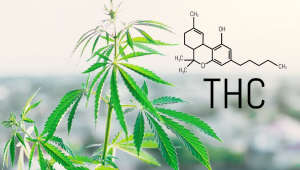Cannabis, CBD, Magic Mushrooms
The Brain on THC: How Cannabis Affects Memory, Mood, and Focus
Cannabis is no longer a taboo topic reserved for counterculture. With legalization spreading and wellness conversations evolving, more people are turning to THC-rich cannabis not just for recreation, but for potential mental health benefits — and challenges. But how exactly does THC, the primary psychoactive compound in cannabis, affect our brain functions like memory, mood, and focus?
The answer is complex — influenced by dosage, individual brain chemistry, age, and even the strain of cannabis consumed. This article dives into what neuroscience tells us about the brain on THC, and what that means for mental performance and well-being.
Meet THC: The Psychoactive Powerhouse
THC (tetrahydrocannabinol) is one of over 100 cannabinoids found in the cannabis plant. It works by mimicking a naturally occurring neurotransmitter called anandamide, binding to CB1 receptors in the brain, especially in areas that control memory (hippocampus), mood (amygdala), and focus (prefrontal cortex).
When THC binds to these receptors, it alters normal brain function, sometimes enhancing certain experiences — and other times impairing them.
1. Memory: Short-Term Disruption, Long-Term Questions
THC is well-known for its effects on memory, particularly short-term memory. Studies show that THC interferes with the brain’s ability to form and retain new information — especially at higher doses or in novice users.
❌ Short-Term Effects
- Impairs working memory, the ability to hold and manipulate information briefly (e.g., remembering a phone number).
- Can reduce attention span, making it harder to absorb new information.
- These effects are dose-dependent and temporary — most wear off after a few hours.
✅ Long-Term Potential
- Emerging research suggests low-dose or occasional cannabis use may not harm — and may even support — long-term memory in some individuals.
- THC may stimulate neurogenesis (new neuron growth) in the hippocampus at low doses, especially in older adults.
- Chronic, heavy use, however, has been linked to hippocampal volume reduction in some studies — though findings remain mixed and highly individualized.
2. Mood: A Double-Edged Sword
Cannabis has long been used to relax, uplift, or emotionally soothe. But its effects on mood are highly variable — one person’s calm can be another person’s anxiety spiral.
✅ Potential Benefits
- Boosts dopamine temporarily, creating feelings of euphoria or lightness.
- Can reduce symptoms of anxiety, depression, and PTSD, especially in low doses or when paired with CBD.
- Promotes emotional introspection and catharsis in mindful or therapeutic settings.
❌ Potential Drawbacks
- High doses of THC can increase anxiety, paranoia, or emotional volatility.
- Regular use may cause blunted emotional response or contribute to low motivation in some users.
- In individuals prone to mood disorders, THC can amplify underlying issues, especially without professional guidance.
3. Focus and Attention: Strain and Dose Matter
The effects of THC on focus and mental clarity are nuanced.
❌ Cognitive Interference (at high doses)
- THC may reduce executive function, making it harder to concentrate or complete multi-step tasks.
- Inattention, mind wandering, or “getting stuck in thought loops” are common during intense experiences.
✅ Enhanced Focus (at low doses or with certain strains)
- Microdosing THC has been reported to improve task engagement, flow states, and creative problem-solving.
- Sativa-dominant strains, known for uplifting and cerebral effects, may promote mental alertness and idea generation.
- In ADHD communities, some users report cannabis helps with calm focus, though clinical evidence is still emerging.
THC and Brain Chemistry: A Summary
| Brain Function | THC’s Effect | Depends On |
|---|---|---|
| Memory | Impairs short-term, mixed on long-term | Dose, age, frequency, individual |
| Mood | Can lift or destabilize mood | Dose, mindset, baseline mood |
| Focus | May hinder or enhance | Strain type, dose, tolerance |
How to Use THC Mindfully for Cognitive Wellness
If you’re using cannabis and want to preserve (or enhance) your mental performance:
- Start low, go slow – especially if new to THC
- Use daytime-appropriate strains (e.g., Sativa or balanced hybrids) if aiming for focus
- Pair THC with CBD to reduce anxiety and overstimulation
- Avoid THC before important learning or memory-dependent tasks
- Journal or track your experiences to identify optimal doses and effects
Final Thoughts: Navigating the THC Mindscape
THC’s effects on the brain are far from one-size-fits-all. It can be a tool for relaxation, inspiration, and introspection — or a barrier to focus, clarity, and memory — depending on how it’s used. With intention, moderation, and education, THC has the potential to support mood and mental flow. But without awareness, it can just as easily cloud the mind it’s meant to expand.
The real key? Know your brain, know your strain — and always listen to your experience.

